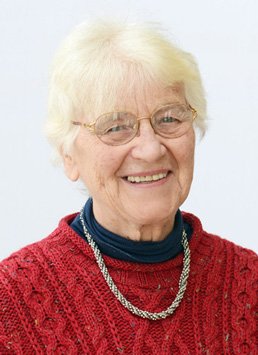Society for the Study of Women Philosophers, Inc.
a non-profit, tax-exempt educational charity 501(c)3 Internal Revenue Code
Mechtild of Magdeburg
(Mechthild of Magdeburgh)
1207-1282
Philosophy of Religion,
Religious Epistemology, Mysticism
|
Kate Lindemann's Women Philosophers pages |
 |
Remember!! Your purchase of books by clicking on Abe Books or Amazon links through this site earns us a small commission that is used to provide travel scholarships. |
Mechtild of Magdeburgh, philosopher, mystic lived much of her life alone and without the support of a monastic community. In her later years the Monastery at Helfta welcomed her and she became an important member. She has left us with some remarkable poems and prose writings.
Chronology
1207 ca. Birth of Mechtild of Magdeburg - it appears that she was born into a wealthy family - probably nobility.
1219 - She receives "God's call" and says that God's greeting continued on each day for the rest of her life.
1227 ca. - Mechtild moves to Magdeburgh to live a 'religious life'. We know that she was a Beguine and followed the general way of life of this lively, special group for women. She spent some 40 years in this way of life.
In Magdeburgh she became acquainted with the Dominicans and it seems clear that she read many of the Dominican writers on the spiritual quest.
It appears that she was influenced by Albert Magnus (Albert the Great) who searched for wisdom and truth in all quarters, including the scientific. She probably knew the works of his pupil, from Italy, St. Thomas Aquinas who wrote both philosophical and theological works. (Thomas is the Christian scholar who embraced the work of Aristotle at a time when many Christians scholars saw Aristotle as somewhat 'dangerous". Aquinas also studied and respected the works of many of the Arab scholars (Averroes, Avicenna etc.). Aquinas often quotes these two Muslim scholars in his Summa and other works. He knew the Dionysian, Platonic, Augustinian and Anselmian traditions that dominated much scholarship of the time. Aquinas had new translations made of Aristotle and did much to integrate the Aristotelian philosophy into Medieval European thought.)
Mechtild of Magdeburgh wrote of the life of seeking wisdom and told of her visitations from the divine. What is unusual about her writings is that she composed her work in middle low German at a time when most wisdom literature was composed in Latin. Thus she is remembered as an early proponent and popularizer of German as a language worthy of the divine and holy.
Mechtild of Magdeburgh was very vocal in criticizing religious laxity and decay. So much so that some called for the burning of her writings. With advancing age, she was not only was alone, and the object of much criticism but she also became blind.
1270 ca. She moves to the monastery of Helfta where she is welcomed and lives out her final years.
It is speaks much of this community and its Abbess, that they would embrace a woman who was over 60 years of age, in poor health and so isolated by society. Having lived alone for her adult years, she certainly did not come with highly developed skills of community living.
It is unclear whether she actually 'formally joined the Cistercian community' or if she simply resided there and participated in the religious services but did not take Cistercian vows. Still, it appears that she was much loved and admired. It is said that she became a real influence on the community's life and spirit.
Again the monastic community shows itself a nurturer and safe harbor for women who wish to devote their life to seeking Wisdom.
1282 - Mechtild dies at Helfta. It is likely that she was buried in the monastic cemetery but it appears that there is no special marking of her grave.
Writings of Mechtild of Magdeburgh
Her main work is, Mechthild of Magdeburg: The Flowing Light of The Godhead: The Revelations of Mechthild of Magdeburg
Here are some online excerpts from her works
Introduction (in English) and selections can be found at Mechtild of Magdeburgh
Some poetry:
I can not dance Lord, unless you lead me
Mechtild of Magdeburg is one of more than 100 women featured in A History of Women Philosophers photo album, and is one of more than 40 women featured in
Busted!! A Pictorial History of Women Philosophers, Volume 1.
This page was last rebuilt 12/14/14.
Society for the Study of Women Philosophers